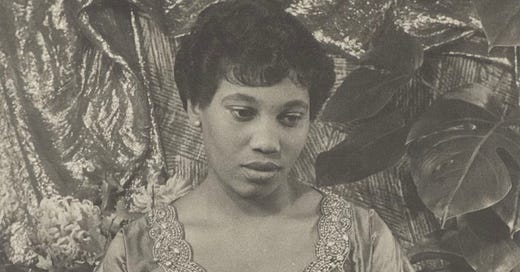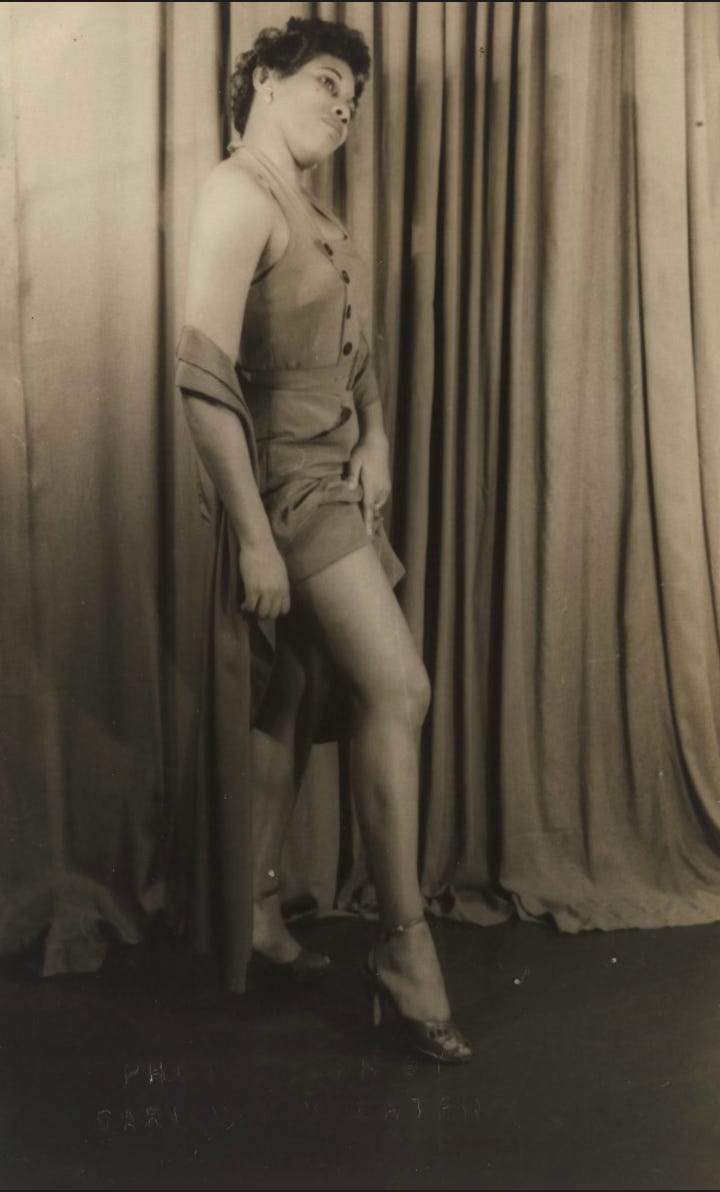BEFORE GOOGLE
The photo above is one of a treasure trove of photos taken of Leontyne Price by Carl Van Vechten in the 1950s. This one, and the one below, are from the collection of the Museum of Modern Art in New York which has attained 46 more of his photographs of other noteworthy African Americans from the middle of the 20th Century. These three of Price seem to coincide with her appearance in Porgy and Bess in the early 1950s when she toured with the show for two years and sang the role of Bess in London, Paris, Berlin and Vienna as well as in New York. Porgy was sung by William Warfield. He and Price wed during the tour but divorced in 1973 after having separated in 1969. Sportin’ Life was played by Cab Calloway and Ruby by Maya Angelou. Price famously attended the Juilliard School with the financial help of a wealthy donor from her hometown in Mississippi, Elizabeth Wisner Chisholm, the daughter of a local lumber baron. Paul Robeson also held a benefit concert for her to help pay for her tuition and expenses in New York. The first Bess was, in fact, Ann Brown, a 20-year-old Juilliard student and the first African American admitted to study there. She later settled in Norway and became a Norwegian citizen.
This past week I saw the production of A Streetcar Named Desire here in London which is on its way to New York’s Brooklyn Academy of Music. Each time I’ve seen this play in many of its varied productions - I even played the young Bill Collector in a production at the Vicksburg Little Theatre which I wrote about in my first memoir Mississippi Sissy - or watched the film version and Blanche mentions being from Laurel, I think of Leontyne Price who is from there, as is Parker Posey. I also think of the character named Laurel who is at the center of Eudora Welty’s novel The Optimist’s Daughter which won the Pulitzer Prize. I’ve always thought that those three women sitting around talkin’ - Price, Posey, Welty - would make a great play about the absurdities and absolutions and dignity and despair and talent and tenacity and civility and sense of irony needed to be a Mississippian of a certain gracious grain. Welty was also an unabashed liberal and Democrat in the rabidly right-wing state. She was great friends with the Democratic governor William Winter who served from 1980 - 1984. She even kept a William Winter bumper sticker on her car for years. When Winter became Mississippi governor back in 1980, Welty participated in his inauguration, as did Price. "I introduced Leontyne Price to Eudora and she dropped to her knees and clasped Eudora and said, 'My heroine,'" Winter once recalled.
Parker Posey is a friend of mine. We were both in the first Tales of the City series on PBS and marched in the Gay Pride parade in New York the year it aired and bonded along the parade’s route as we talked about our own roots in Mississippi. But Leontyne Price and Eudora Welty will always be my cultural heroines, my north stars. They made my being a Mississippian something that mattered in complicated ways and didn’t just feel as if I were maimed by it and its meanness toward “the other.” They made their own feelings of otherness imbue their art and limn their dignity and grace.
Has there ever been a more stunning display given us of such dignity, such grace as this aria below and its ovation when the diva made her final appearance at the Metropolitan Opera in 1985 after making her debut there in 1961 in Verdi’s Il trovatore as well as opening its new house at Lincoln Center in 1966 in Samuel Barber’s Anthony and Cleopatra. She was portraying the title role in Verdi’s Aida for her farewell, one of her signature roles, which she performed 42 times. It was voted by the viewers of PBS as their #1 Supreme Moment of any from its Live from the Met broadcasts. “For me,” said Renee Fleming, “there has never been a more beautiful voice.” For me either. This clip brings me to tears each time I watch it. Just as Aida is bidding farewell to her home which she will never see again, Price is bidding farewell to the operatic stage.
Dignity.
Grace.
A gift imbued by God - and the gods and goddesses who allow each millennium or so a human to imbibe in such a sound that is then entrusted to her voice to travel through her to the rest of us.
[TO READ AND VIEW AND LISTEN TO THE REMAINING RUBRICS THIS WEEK, PLEASE CONSIDER JOINING OUR PAID SUBSCRIBER COMMUNITY FOR ONLY $5 A MONTH OR $50 A YEAR. THANKS.]





